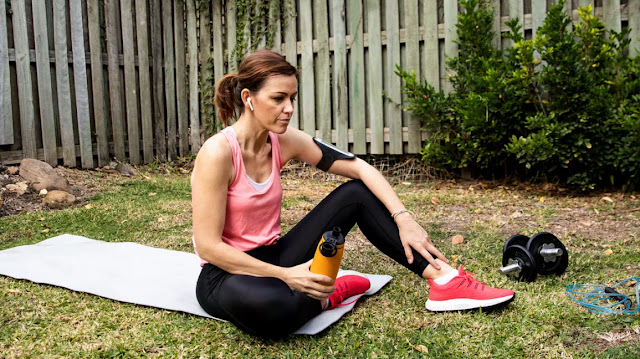Top 6 Stress-Relieving Strategies
Identifying our stress triggers is an important step in the process of managing and reducing stress. However, despite our best efforts, stress can manifest itself physically or mentally. Instead of ignoring these symptoms, there are several ways to change your approach to stress management.
XEM THÊM :
Cách chơi Xì dách online đổi thưởng ăn đậm
1. Deep Inhalation
Deep breathing causes the body to respond physiologically by lowering blood pressure, stabilizing heart rate, increasing oxygen consumption, and decreasing stress hormones. Developing an awareness of your breath can help you cope with and manage stress. There are various breathing techniques, but they all have one thing in common: they are all positive stress relievers.
- Boxed Breathing, also known as Square Breathing, is a simple breathing technique that involves inhaling for four counts, pausing before exhaling for another four counts, exhaling slowly for four counts, and inhaling for another four counts. Rep until you feel grounded. This technique is even appropriate for children.
- Progressive Muscle Relaxation: This technique involves tensing and relaxing different muscle groups as you exhale. Take a slow, deep breath in, for example. Tighten the muscles in your feet. Then exhale and release the tension in your feet. Group with the other muscle groups.
- Breath Focus: Begin this breathing technique in a comfortable location. Close your eyes and choose an image and a word to use as a focal point while breathing. While practicing this technique, keep your attention on the image. When you've finished exhaling, repeat the word or phrase.
2. Turn It Off
When it comes to stress management, listening to the right music can do wonders. Furthermore, this technique is simple to incorporate into your daily life without disturbing your routine. Listen to music while working out, cooking, driving to work, or cleaning.
3. Exercise
A regular workout routine is an effective method of stress management and reduction. Exercise improves your mood and is good for your physical health. This does not imply that you must pay for a gym membership or make drastic changes to your daily routine. You can incorporate exercise into your cleaning routine by selecting workout videos online and participating from the comfort of your own home, extending your dog walks by 20 minutes, or practicing natural movement by gardening and spending time outdoors.
4. Exercise Mindful Twitching
All ages are welcome. The popular fidget toys - pop-its, spinners, cubes, and others - are popular with children and teenagers, but they have also been used to help adults in the workplace as a small outlet for stress or office restlessness. They also provide relief and calm to those who suffer from nervousness and anxiety. Grab a pop-it over a cup of coffee at the office and give it a shot.
5. Enhance Your Diet
What we eat and drink has a big impact on our mental health. Have you ever heard that a happy tummy equals a happy baby? That is certainly true for adults as well. Improving your gut health will benefit both your overall health and your mood. Rather than emptying your cupboards and investing:
- Change your cooking oil: Did you know that conventional cooking oils like corn, canola, and vegetable oils can have a negative impact on your gut health? Olive oil is a healthy fat, but it should not be used in high heat. Use olive oil only for garnishes. Avocado oil is a healthy cooking oil that is becoming more widely available in commercial supermarkets. Cooking oils can also be replaced with ghee, animal fats, and butter.
- Purchase a high-quality probiotic, preferably one that is food-based for improved absorption. Probiotics improve gut health, which in turn improves your mood. Probiotics are available for women, men, and children.
- Reduce or replace your caffeine intake! Are you aware that coffee is one of the most processed foods? Instead of purchasing coffee from a well-known brand, consider purchasing it from a local cafe and learning about its origins and cultivation. If you want to avoid caffeine entirely, include calming herbs like chamomile, anise seed, and mint in your diet.
6. Get Some Rest
Not only does a lack of sleep harm your physical health, but it can also harm your mental health. Before you go to bed, make sure your bedroom promotes a good night's sleep by providing a dark, cool, and quiet environment in which to sleep.
Stress affects everyone in some way; however, if not managed properly, it can have a negative impact on your mental and physical health. Stress can be transformed into relaxation by incorporating these techniques into your daily routine. Relax with herbal tea, listen to soothing music, and eat a nutritious meal. Treat your body and mind to some TLC, and you'll find it easier to get through your days.
READ ARTICLES:






Comments
Post a Comment